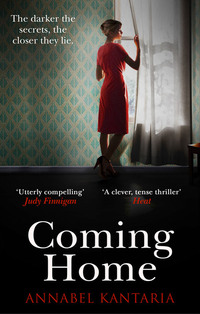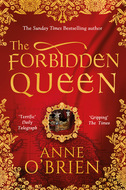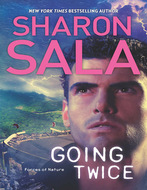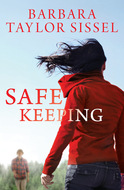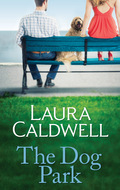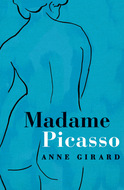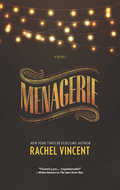Kitap dosya olarak indirilemez ancak uygulamamız üzerinden veya online olarak web sitemizden okunabilir.
Kitabı oku: «Coming Home», sayfa 5
CHAPTER 17
It was a perilous climb up to the attic. Mum positioned the ladder as best she could, adjacent to the door, and held it steady, but I had to haul myself up a good foot between the top of the ladder and the floor of the attic, then transfer myself across sideways. Dignified it was not.
‘Right, are you up?’ she called, as I dusted myself off and felt around for a light switch. ‘If you’re OK up there I’ll just pop up to the High Street,’ she said. ‘Do you need anything?’
I said that I didn’t. I had mixed feelings about going through the attic and I was glad Mum wasn’t going to be hanging around at the bottom of the ladder, waiting to see what I found. I was curious to see what was up there but, like her, I was also slightly nervous of what I might find, of the memories that might resurface.
Easing myself along the ancient floor beams (I vaguely remembered Dad telling me as a child that I must stand only on the beams—was it true? I didn’t know), I looked around. The air smelled musty and particles of dust floated languidly in the yellow of the weak electric light.
Every available inch of floor space was choked with boxes. Empty ones, full ones, mysterious ones, labelled ones. Toys, clothes, books, old computers, old stereos, speakers and suitcases. There was more than thirty years’ worth of family junk but, as I looked more closely, I realised there was at least some method to the madness: my old toys were grouped together, as were bunches of suitcases, boxes of clothes, hardware, empty boxes and other items. I realised I wasn’t going to be able to make a dent in the clearing today—once I’d had a good look around I’d hire a skip and blitz the whole place in a couple of sessions.
In a dusty corner, balanced on the beams near the other toys, I spotted the old wooden doll’s house Dad had made for me when I was six. I went over—it was smaller than I remembered but, even under a coat of dust, it was still lovely. Looking at it now, as an adult, I couldn’t believe the attention to detail Dad had put into it: different rooms were sectioned off, each with hinged doors and each wallpapered a different colour; there was tiny home-made furniture; a pipe-cleaner family for whom Mum had made wool bodies and tiny clothes; and there were even electric lights.
Feeling like a giant, I slid my hand inside the living room and clicked a tiny switch—long ago, the lights had even worked. Running my fingertips over the neatly painted window frames, I understood for the first time what a labour of love making this house must have been for Dad. I’d played with it countless times as a child, assuming that everyone’s fathers hand-crafted wooden doll’s houses for them. It was only now—too late—that I realised how special it had been; how much Dad must have loved me. I looked up at the rafters and whispered, ‘I loved it. Thank you.’
Reluctantly, I turned back to the attic. By the door was a messy pile of empty boxes—the box that the new retro phone had come in; the new DVD-player’s box; the bread-making machine’s box. My mother hated to throw anything away—she must have tossed these boxes up into the attic without actually coming up the ladder; she can’t have been up for years. As I started to stack the boxes neatly away from the door, I noticed a camp chair and a small table set back behind the door, in a corner where you wouldn’t naturally look when climbing into the attic. On the table, there was a lamp, crudely wired into the mains supply, a couple of books and an opened jumbo packet of Minstrels—Dad’s favourite sweets.
After stepping carefully past the door, I went over. Surprisingly, the chair, table and books weren’t covered in the dust that veiled everything else in the attic. The thinnest book was a school exercise book. My breath caught as I saw Graham’s careless writing scrawled on the front: ‘NEWS’. I flicked through the book, dipping in and out of Graham’s accounts of our weekends, written for Monday morning ‘news’ at school.
‘On Saturday we went to Greenwich Park,’ he’d written. ‘Me and Evie played hide n seek in the adventur playground. I won. We had Mr Whippy 99s. Evie dropped hers so I shared mine.’ He’d drawn a picture of two children holding huge ice creams. He’d put us in identical outfits, but made me smaller and scribbled me some mad brown hair. I sank into the chair and flicked through the book, absorbed in the events so crudely described: our childhood on the page.
Next I pulled the thick book towards me—it was a photo album and, even before I looked, I knew what I’d find inside: Graham. Hundreds of pictures of Graham. His whole life, lovingly tracked out in pictures, with captions written in my father’s neat handwriting. I hugged the album tightly to my chest, and squeezed my eyes shut. So this is how Dad coped with Graham’s death? He came up to the attic and sat, alone, remembering his dead son? I sat there for some time, imagining how Dad must have felt, the sounds of family life, such as it was, drifting up from the house below as he—as he what? Remembered? Cried? Blamed himself? Talked to Graham?
‘Oh, Dad,’ I whispered. ‘I didn’t know. I would have talked to you. Why didn’t you talk to me?’
Taking a deep breath, I put the photo album and the News book carefully back into their places and turned to face the attic.
The first brown box I came to was thick with dust. I brushed the label. ‘Dresses’ it said. Now that was exciting: could they be Mum’s? I still remembered the days before the accident when Mum had dressed up every day, following the trends in magazines and trying out different looks. Things had changed when Graham died, and I’d always wondered what had happened to Mum’s glamorous wardrobe.
The box was a good weight, tightly packed. I opened it, picked out the top dress and shook it open. It was a powder blue and silver lurex minidress. Holding it to my face, I inhaled, catching—or maybe imagining—a faint whiff of a perfume that triggered memories of Mum and Dad all dressed up and ready to go out: Mum squealing ‘Mind my hair!’ as she stooped to hug and kiss Graham and me goodnight, her hairdo rigid with lacquer and her shiny white boots reaching well above her knees; Dad, with a twinkle in his eye, taking Mum’s hand as they headed out of the door; the crunch of the car tyres on gravel and Lily from next door hustling us up the stairs to bed. Happy memories. Excited to think Mum’s dresses had survived all these years, I shoved the box towards the door and moved on.
Dust lay thick on the tops of all the boxes; the cardboard was cold and damp to touch; a fusty smell hung around them all. I slid tatty string over the edges of another box, opened it and gasped in surprise as my old dolls looked up at me, their nylon dresses as bright as the day they were bought.
Since the accident, I’d mastered the art of not dwelling on the first eight years of my life; it was too painful to remember what life had been like with a brother. I’d not given a moment’s thought to these dolls since Mum had packed them up, but seeing them brought memories flooding back: the day I threw ‘Pattie’ at Graham, accidentally smashing the glass lampshade in the living room; the time I threw a dolls’ ‘pool party’ in the bath—a pool party that Graham had gatecrashed with his Action Man; ‘Rosie’—a pretty little doll Mum had bought me to keep me occupied on my first ever flight, aged six.
I still remembered that flight; I saw it in snapshots. I’d been wearing a denim skirt that Mum had bought for me—my first denim skirt—and I’d felt so grown up. Graham and I had begged to sit together in the two seats in front of Mum and Dad. Mum had worried what we’d do if there was an emergency, but Dad had pulled rank and Graham and I had spent the flight pretending we were travelling alone as we ordered our apple juice from the cabin crew. I ran a hand through my hair. While I’d gone on to enjoy plenty more flights, Graham had flown just one more time.
Perching on a beam, I put Rosie carefully back and picked out the other dolls in turn, unwrapping them from the crumbling pages of the local paper in which they’d been cocooned. Carefully, I moved their arms and legs, touched their shiny hair and remembered the contours of their plastic faces. Then I rewrapped them all, one by one, closed the box and pushed it to one side. I’d no idea what to do with them.
The next box was packed with old books, teddy bears, games and wooden jigsaws that I remembered bickering over with Graham. As I turned the toys in my hands, half-formed memories chased through my mind like beagles on the hunt. At the bottom was an old radio: Dad’s. Wiping the dust from it, I remembered cuddling on his lap while he listened to dreary voices talking about the news. The radio was tarnished now, decades from its prime, but I could still smell Dad on it, the clean scent of his fresh cologne. Sighing, I stood up and pulled my hair into a messy bun: at this rate, it was going to take me days to get through the attic. I’d have to learn be less emotional.
An hour or so later, I straightened up, pleased with the size of the ‘throw out’ pile I’d managed to make of things that obviously had to go. In the far corner of the attic, a glint of metal caught my eye. Stepping closer, I realised it was Dad’s old bike. The last time I’d seen it was when the police had brought it back from the accident site. Sitting in the living room, Dad and I had heard the rumble of a truck engine outside.
‘Delivery for you,’ the driver had said, indicating the two bikes on the back of the truck, one pristine, one a twisted and broken frame. ‘You don’t have to take them. Some people want them … everyone’s different … closure …’ he tailed off.
Mum had come barrelling down the stairs. ‘What is it?’
Dad had pointed wordlessly to the truck. The driver shuffled on the doorstep. ‘Well?’
Mum was silent.
‘Yes, please. Unload them,’ said Dad eventually.
We’d watched as the driver had taken down Dad’s bike first, propping it up by the side wall, then he’d reverently lifted out the mangled remains of Graham’s bike and placed it gently on the gravel.
I’d watched silently as Dad had signed the delivery papers and the truck had driven away. When we were back in the house, I’d cowered against the dresser as Mum had fallen on Dad, pummelling his chest with her fists and screaming, ‘How could you? It’s all your fault!’
Dad had tried to pull her off, tried to hug her. ‘Carole, please. You’re emotional. Think about it. We’ll bury it with him. What else can we do with it? I refuse to let it go for scrap.’
What I hadn’t realised was that Dad had kept his own bike. Somehow, he must have hidden it from Mum; got it up to the attic himself. I brushed dust off the saddle now, and squeezed the brakes. The tyres were flat and the brake pads felt like concrete, but there appeared to be nothing a bit of oil wouldn’t cure; ditto with the chain. It was a nice bike; I remember it had been expensive, one of the first things Dad had treated himself to when his first book was published. Not daring to get onto it in the attic, I stood next to it appraisingly as I squeezed the brakes and imagined myself riding it. Dad had been tall but it was still a manageable size. I stared down at my hands on the handlebars Dad would have gripped and thought, Could I?
Although the bike was veiled in tragedy, I liked the continuity of me riding it. The bike was a connection to Dad and I really needed that right now. I’d been unable to say goodbye to him and my hopes of us becoming close again had been obliterated overnight. What little I’d ever had of my father was slipping away from me. Like the sky needs the stars, I needed to feel close to him; the ache was almost physical. But what would Mum say? The accident had been twenty years ago and the bike was nondescript, black; maybe she’d even forgotten what it had looked like. If I got it down without her seeing, could I pass it off as a friend’s? I wheeled it carefully towards the attic door then turned back. What next?
CHAPTER 18
‘So how are things with your dad?’ Miss Dawson asked. Today she’d brought sweets and I sucked on a sticky Drumstick, softening it up before I bit into it, while I thought about what to say. Graham wasn’t the only person I’d lost in the summer.
‘He doesn’t play Mastermind with me any more,’ I said.
‘Oh? Is that something you used to do a lot?’
‘Yep. He stopped reading with me as well.’ I thought about the books we used to read together at bedtime. The way he did the silly voices.
‘Have you tried to speak to him? Properly?’ Miss Dawson’s voice was gentle.
‘He’s never home. He’s away on lecture tours. It’s “very important” for his “career”.’ I mimicked the way Dad said it.
The truth was, Mum and I hardly saw Dad these days. He worked long hours and started going away on lecture tours a lot of the time.
‘Why won’t he speak to me?’ I said, a sob catching in my throat. ‘I’m still here. It’s like he thinks I’m dead, too.’
‘He must be at home sometimes?’
‘He locks himself in his study.’
‘Working?’
‘Huh.’ Usually he was writing papers and books and whatever else historians did, but sometimes—and I knew this because I’d peeped around the door—Dad just sat with his head in his hands. ‘He’s really busy with work,’ I said. ‘He’s really famous. He’s in the papers, magazines and everything. Once he was on the radio. And the telly.’
‘Wonderful. You must be proud of him. What does he do?’
I knew she knew. ‘He’s a historian. He writes papers. And books, and he’s made TV shows and everything. He’s just finished a series of books for children. He’s been on TV.’
People talked about how my dad managed to make history ‘come alive’ for children. Mum’s friends stopped mentioning Graham when they came to the house; they stopped asking how we were. All they wanted to do was meet Dad; you could see it in the way they looked past me and Mum. Everyone talked about the way Dad could ‘connect’ with his students. I didn’t know what that meant, but it sounded nice. I wished he could ‘connect’ with me.
‘I just want him to notice me again,’ I said. ‘I want it to be how it was before.’
‘Oh, Evie. It will get better. Everyone deals with tragedies differently. Your dad lost his son. It’ll take time.’
‘But I’m still here,’ I said. ‘Can’t he see that? I’m still here.’
CHAPTER 19
It wasn’t easy getting the bike down from the attic but, somehow, I managed. I was keen to do it before Mum got back and, somehow, after a struggle that broke two of my nails, gouged out a small section of wallpaper and left a smear of oil on the paint of the attic door, both the bike and I were on the landing. I bumped it down the stairs and into the kitchen, where I examined it more thoroughly, remembering the do-it-yourself tutorials Dad had given Graham and me in this very room; the reluctant (on my part) Sunday afternoons spent learning how to oil our chains, flip off the tyres and change the inner tubes. The bike needed a bit of a service, a good re-grease and a couple of new tyres, but, aside from that, it was in good shape. I lay newspaper over the kitchen floor, dug out the toolkit and the oilcan from under the stairs and, cranking up the radio, got to work.
I didn’t hear Mum come in, not until she snapped off the radio, causing me to jerk up from where I was slowly dripping oil into the chain. I was starting to wonder if I’d actually have to take the bike for a professional service; the chain was more dilapidated than I’d originally thought, and the brake blocks definitely needed changing.
Mum was breathing heavily, her basket of shopping dropped at her feet, Richard hovering behind her. ‘What are you doing?’ Her voice was quiet, but a red spot high on each cheek belied her calmness.
‘Oh hi!’ I said, realising at once that I’d underestimated her. Woefully underestimated her. Of course she would remember Dad’s bike. I looked at the floor, my cheeks burning in shame. I could have handled it so much better. How could I have been so stupid to think she wouldn’t recognise the bike?
‘WHAT. IS. THAT?’
‘Umm …’
‘Is it your father’s?’
I nodded feeling like an eight-year-old. I could feel my lip curling like I was going to cry. I made a mistake! I wanted to say. Go away and I’ll put it back and we’ll pretend it never happened! ‘It was in the attic,’ I said.
‘And what are you doing to it?’ Mum’s words were clipped.
‘I was just taking a look at it …’
‘Why?’
‘Oh, no reason. Just … I wondered what you wanted to do with it.’
‘Well, mark my words, young lady. You will not be riding that bike. You hear me?’
‘What?’
‘I said, you are not riding that bike.’
‘But …’
‘But nothing. Now you’ve got it down, you may as well put it outside for the bin men. But mark my words, if I catch you …’ Mum let out a stifled scream and steamed out of the room, fury stuck to her like a swarm of bees.
‘It was twenty years ago!’ I shouted after her, suddenly furious myself. ‘When are you going to face up to it? He’s dead! They are both dead!’ I dropped the oilcan and collapsed onto my knees on the kitchen floor.
Richard looked sadly at me and shook his head. ‘To be fair, Evie, that was a bit much.’
‘To be fair, Richard,’ I snapped, ‘it’s none of your business.’
I waited for him to leave the room, then stood up, rubbing out the ache in the small of my back. I wheeled the bike out into the garden and around the side of the house, where I propped it up by the bins. I’d decide what to do with it later.
CHAPTER 20
‘Evie, what happened?’ Miss Dawson asked. ‘The school called. I came as quickly as I could. What happened?’
I liked that Miss Dawson didn’t ask if I was all right. Even my teacher had spotted that I wasn’t all right. When I hadn’t been able to stop crying in class, she’d led me to the nurse’s room and asked her to phone my mum.
‘No! Not Mum!’ I’d curled in a ball on the narrow bed and wished I could stay there forever.
‘Who then?’ Nurse had asked. ‘Is your dad around?’
I’d shaken my head.
Nurse had tut-tutted. ‘Who then? Miss Dawson?’ and I’d agreed with a nod.
Now Miss Dawson was here, I knew I had to talk to her. I pulled myself up so I was sitting on the bed.
‘It’s Dingbat,’ I said.
Miss Dawson waited.
‘Hamster,’ I hiccupped. ‘He’s dead.’ I scrubbed at my eyes with the balled-up tissue I’d been holding all morning, my breath still jagged.
‘Oh, Evie. I’m sorry to hear that.’ Miss Dawson rubbed a hand over her face.
But it wasn’t that Dingbat was dead. Well, it was, but it wasn’t like Miss Dawson thought. Dingbat had been Graham’s hamster. He’d got him when he’d turned ten—for his last birthday. He’d begged and pleaded, claiming he’d look after the hamster one hundred per cent himself. Mum hadn’t thought Graham would manage, but Dad had persuaded her to give him the benefit of the doubt and Graham had hand-picked Dingbat from a heap of ginger-and-white fluff at the pet shop. And, to Mum’s surprise, he’d looked after Dingbat really well, feeding him, changing his water, peeling grapes for him and even cleaning out his cage. He’d really loved him. After the accident, I’d taken over caring for Dingbat. It made me feel like I was with Graham.
‘He was Graham’s,’ I said.
‘It’s very sad when pets die,’ Miss Dawson said carefully. ‘And it must be very hard for you with … Dingbat? … because he was a link to Graham?’
‘Mmm.’ I didn’t know what to say. I was supposed to be able to tell Miss Dawson anything, but I didn’t know if I could tell her what had happened yesterday after school. Whenever I thought about it, I started to shake.
I’d gone into the kitchen to ask for a biscuit. Mum had been standing at Dingbat’s cage. The cage door was open and Mum had been holding Dingbat, letting him run from one hand to the other as she stared out of the window at the garden. At the exact moment that I opened my mouth to ask for the biscuit, Mum had spun around with a scream and hurled Dingbat at the kitchen wall. I could still hear the crunch of his little body slamming into the wall, the thud of him landing on the tiled floor.
‘Mummy!’ I’d screamed and she’d noticed me for the first time. She’d stared at me, then she’d pushed a strand of hair out of her eyes and come towards me with her arms held out and a smile splitting her face in two. On the floor behind her, Dingbat twitched and then was still, blood oozing from his mouth and ears.
‘Evie, darling. What’s wrong? Come here. Let me give you a cuddle.’ She’d wound her arms around me, stroking my hair, and I’d sagged against my mother, clinging to her, breathing in the scent of her clothes, her perfume. It was the first time she’d hugged me since Graham had died.
‘I love you, Evie,’ she’d said, kissing my hair and running her hands through it. ‘Don’t ever leave me. Promise you won’t leave me.’
It was awful, but the attention was nice and I hated myself for liking it; hated myself for choosing Mum’s hugs instead of running to Dingbat.
‘It’s Mum,’ I told Miss Dawson.
‘OK,’ she said. ‘She probably misses Dingbat as much as you do. I expect he reminded her of Graham, too.’
I twisted the tissue in my hand, my eyes raw. Mum had killed a living creature. Would Miss Dawson have to tell the police? Would Mum have to go to jail? What was worse: Mum like this, or Mum in jail? I took a deep breath and made my decision: ‘It’s just that … I don’t think she’ll let me get a new hamster,’ I said. Well … at least that bit was true.
Ücretsiz ön izlemeyi tamamladınız.
